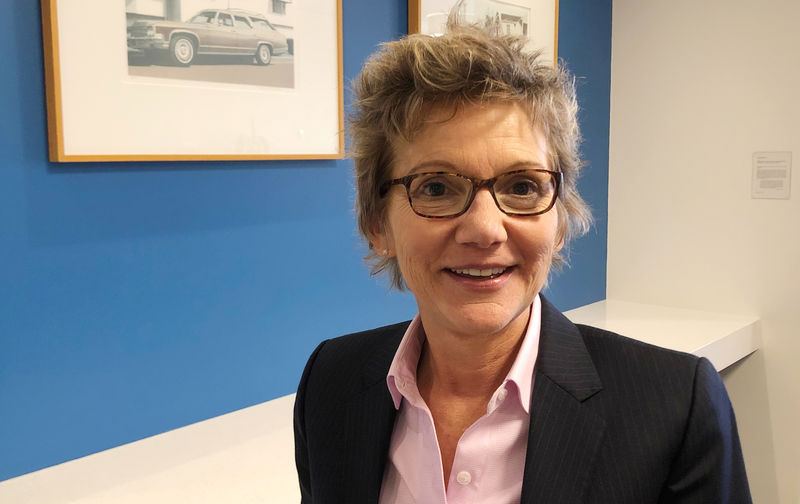WELLINGTON, New Zealand (Reuters) - San Francisco Federal Reserve President Mary Daly on Thursday signaled support for continued U.S. monetary policy accommodation, saying she believes the benefits of running a "hot" economy currently outweigh the potential costs.
"Right now, with little inflationary pressure and considerable uncertainty about the threshold for full employment, I’m biased towards including as many workers as possible in the expansion," said Daly, who is not a voter on Fed policy this year but supported the U.S. central bank's interest-rate cut in July.
U.S. unemployment is at a near decades-low of 3.7%. Meanwhile, inflation has been running below the Fed's 2% target for years, which Daly called a "worrisome" situation that gives the central bank less policy space to combat economic downturns with interest-rate cuts.
Daly, in her remarks prepared for delivery to the Reserve Bank of New Zealand and the International Monetary Fund in Wellington, did not directly say how she views the tradeoffs for delivering another interest-rate cut when she and other Fed policymakers meet in September.
Nor did she refer to the trade uncertainty and global economic slowdown that was central to many of her colleagues' decision to sign on to July's rate cut and to remain open-minded going forward.
Instead she stuck to an analysis of underlying U.S. economic trends, which include slower growth and lower interest rates than historically had been the case, and a weaker link between low unemployment and high inflation than in the past.
Daly noted her own research showing that running the economy hot disproportionately benefits disadvantaged groups like African-Americans, among whom unemployment has recently hit a record low. She said that while keeping rates low could potentially threaten financial stability by encouraging excessive risk-taking, she does not see record corporate debt as currently posing an "acute" financial stability risk.
